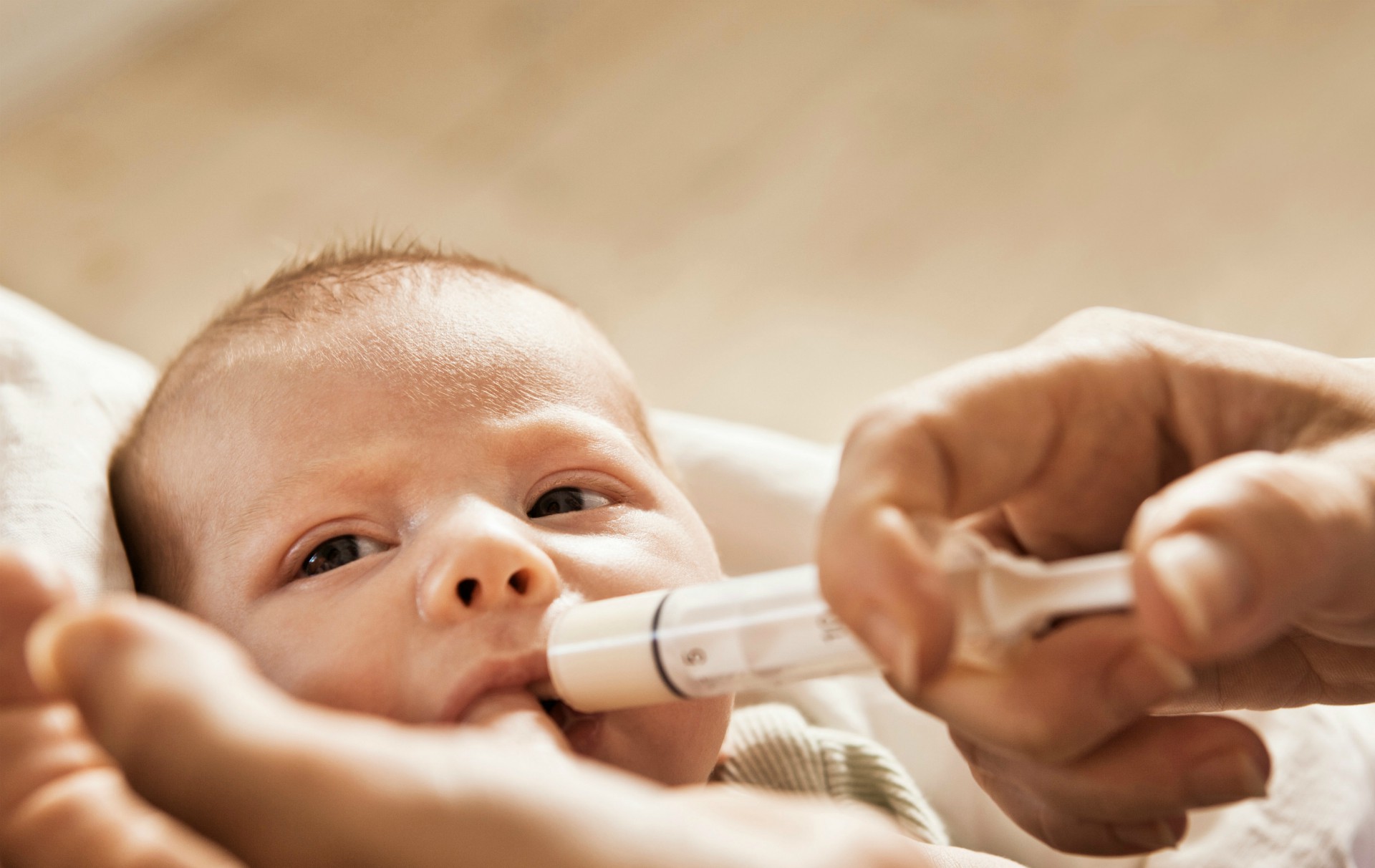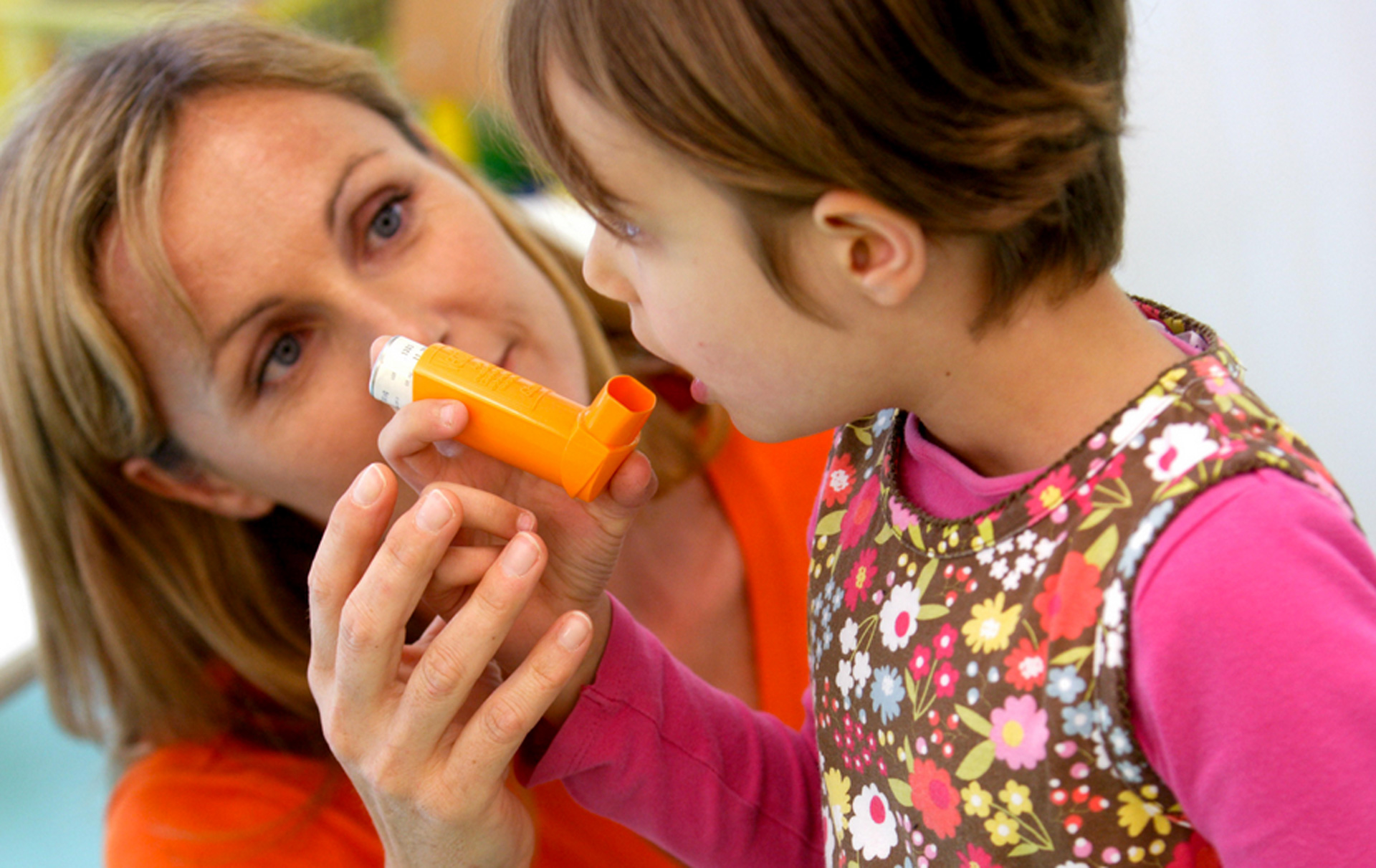Paracetamol-based medicines like Calpol could almost double the risk of asthma, study reveals
These findings may come as a shock to many parents...

Calpol is often parents' go to choice for coughs, colds and every infant niggle in-between. But now a new study has delivered a stark warning about the link between paracetamol-based medicines and asthma.
A study conducted by scientists at the University of Melbourne found a link between those babies who had been given paracetamol on a regular basis and those who developed asthma at the age of 18.
The research involved 620 children, and found that paracetamol 'consumes' an important enzyme vital in clearing up toxins within the lungs.
It also found that those children with a particular variant of the glutathione S-transferase (GST) gene, GSTP1, have a 1.8 times higher risk of developing asthma with frequent paracetamol consumption.
'We found that children with the GSTP1 Ile/Ile variant had 1.8 times higher risk of developing asthma by the age of 18 years for each doubling of the days of paracetamol exposure when compared to children who were less exposed, ' research lead Xin Dai revealed.
GST genes contain instructions for making glutathione - an important antioxidant which is described as a 'built-in natural detoxification system' for the body in the Natural Medicine Journal - which includes organs such as the lungs.
'Paracetamol, on the other hand, consumes glutathione, reducing the body's capacity to deal with toxic exposure,' said Ms Dai.
GoodtoKnow Newsletter
Parenting advice, hot topics, best buys and family finance tips delivered straight to your inbox.

Phanie / Alamy Stock Photo
Children in the study were recruited before birth because they were deemed to be at high risk of developing an allergy-related disease, and had at least one family member with such a disease.
After the children were born, a research nurse contacted the family every four weeks for the first 15 months, then at 18 months, then at two-years-old. They were asked how many days in the previous weeks the child had taken paracetamol.
At 18 the children gave a blood or saliva sample, which was tested for variants of the GST genes: GSTT1, GSTM1 and GSTP1.
They also received an assessment for asthma and a spirometry test, which the NHS describes as 'a simple test used to help diagnose and monitor certain lung conditions by measuring how much air you can breathe out in one forced breath'.
'Our findings provide more evidence that paracetamol use in infancy may have an adverse effect on respiratory health for children with particular genetic profiles and could be a possible cause of asthma,' said Ms Dai, presenting the results to the European Respiratory Society International Conference in Paris.
Despite the research findings, Ms Dai cautioned that the study doesn't prove that paracetamol causes asthma.
Professor Guy Brusselle, from Ghent University, Belgium, is the Chair of the European Respiratory Society Science Council. Commenting on the study findings, he argued that the link between paracetamol and respiratory development needs to be explored further.
'Indeed, the association could be due to confounding factors, such as lower respiratory tract infections caused by viruses in infancy, which are treated with paracetamol and have been linked to asthma.'
According to figures from Asthma UK, 1.1 million children (1 in 11) and 4.3 million adults (1 in 12) in the UK are currently being treated for asthma.
Miriam Habtesellasie is a freelance lifestyle writer who has contributed content to GoodTo, Woman&Home, Women and Idealhome.co.uk. Miriam is based in London and is a fan of everything interiors, she admits to being spoilt for choice living in the capital. From stunning architecture right the way through to eye-catching department store window displays, she believes there’s always an angle to be found that can translate to our abodes.